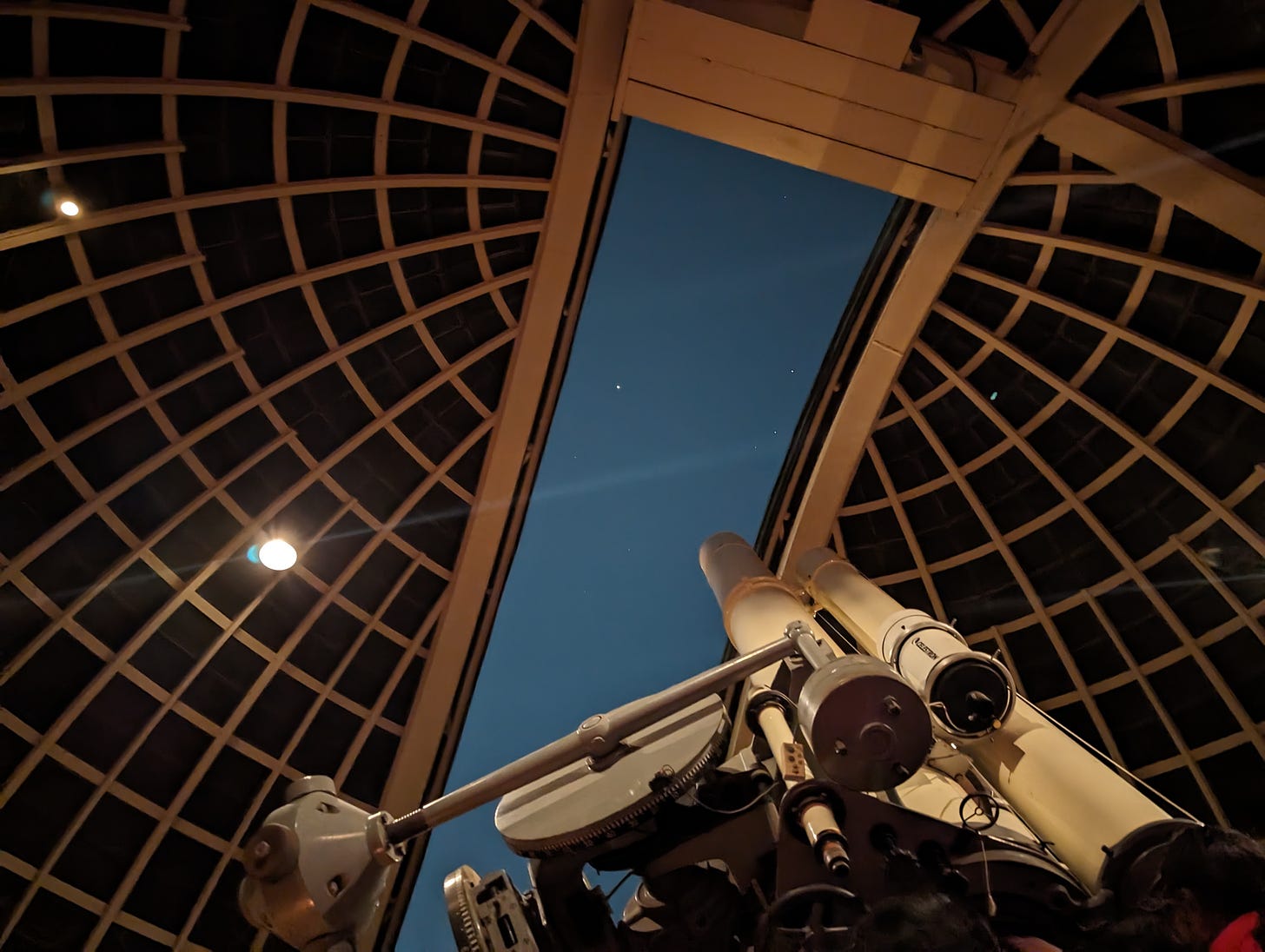The Griffith Park Observatory and the flat earth.
We saw Jupiter and three of its moons and it got me to thinking about the problem of Gnosticism.
There was the Foucault Pendulum, for starters.
The older man who was on staff took the time to show my friend and me the mathematical equations that lead to the conclusions that come from the pendulum, pointing out how different the results would be on the equator or the poles.
He periodically would apologize for perhaps boring us, but I was thrilled that he took the time.
I jokingly asked my friend what the conspiracy budget was to pay off this guy. But I know that, unlike real life, with most conspiracy—especially the more far-out varieties—every “yeah but” has a detailed explanation. There is no room for “I don’t know” or Occam’s razor or just allowing that God knows everything so I don’t have to. I find that the most believable conspiracies have the fewest extremely detailed explanations for every quandary raised.
In short, of course there’s no budget. That’s part of the conspiracy.
The pendulum knocked over two little bars while we were there, meaning at least 14 minutes were spent learning about this device. It would have been more, but the observatory was very crowded and we were moved along by the crowd.
I don’t think the pendulum was controlled by a conspiracy device at the top of the ceiling. I also don’t think the fellow running the telescope to let us see Jupiter and three of its moons—who pointed out the movement necessary to keep it trained on Jupiter, noting that it had to adjust every six seconds or so because of the rotation of the earth—was in on it, either.
But who am I to argue with Monday-morning quarterbacks and armchair enthusiasts?
As I watch the flat earth movement growing—to which I recently learned the term “flerthers” was in reference to, an unfortunate word that wounds like a delicate release of gas—I ask the obvious question but not with the obvious meaning: why do people believe it?
That is not a question about their proofs and arguments—I’m weary of that by now—but a question about the timing and motivation of the belief. Why is that growth happening now, when observational science is the most advanced it has ever been, in such large numbers? What is the reason behind it?
Keep reading with a 7-day free trial
Subscribe to Lone Prairie Blog to keep reading this post and get 7 days of free access to the full post archives.




